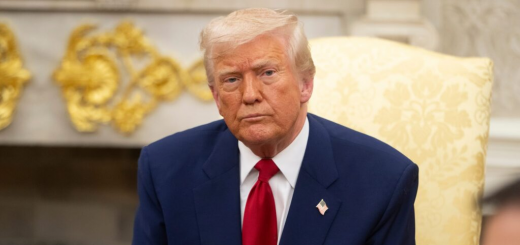RFK Jr.’s Bold Vision: A Wearable Device on Every American by 2029
In a bold and controversial push, Robert F. Kennedy Jr. recently announced before Congress his vision for a nationwide shift in personal health monitoring.
His goal? To see every American equipped with a wearable health device—such as smartwatches, fitness trackers, or continuous glucose monitors—by the year 2029.
Kennedy described the initiative as one of the largest public health campaigns ever launched by the Department of Health and Human Services (HHS), with a focus on empowering people to take greater control over their well-being.

According to Kennedy, these devices go beyond counting steps. They offer real-time insights into vital health metrics like heart rate, sleep patterns, glucose levels, and even early signs of illness. He believes wearables could play a significant role in the fight against chronic diseases like obesity and diabetes by giving people daily feedback that helps them make healthier choices.
“They can literally see what food does to their glucose levels or heart rate, and begin to make smarter decisions about their lifestyle,” Kennedy told lawmakers.
A Health Investment—Not Just a Gadget
Kennedy also compared the cost of wearables to expensive medications like Ozempic, noting that while a smartwatch might cost $80 to $300, some prescriptions can exceed $1,000 per month. He argued that health tech devices offer a far more sustainable approach to preventive care.

The campaign is expected to partner with major tech companies and medical professionals to raise awareness, provide education, and make wearables accessible to all, including those in underserved communities.
Supporters Say It’s the Future of Preventive Medicine
Proponents of the plan say the real-time data can motivate users to be more active, eat better, and stay informed about their health.
In fact, research from 2022 found that people who wear fitness trackers often feel more motivated to improve their habits—and physical activity is linked to lower rates of heart disease, obesity, and hypertension.
A simple goal, like walking 10,000 steps per day, can turn into a powerful motivator when tracked on your wrist.
But Not Everyone Is On Board
Despite the potential benefits, critics have raised serious concerns—especially about privacy, data security, and accessibility.
Many worry that wearable devices could lead to increased insurance premiums if companies gain access to users’ health data.
Others warn of possible cybersecurity risks, as this sensitive information is often stored in the cloud, potentially making it vulnerable to hacking or misuse.
There’s also the issue of whether people in low-income or rural areas will be able to afford or access the technology.
Health experts caution that wearables aren’t a one-size-fits-all solution. Some individuals may benefit significantly from the feedback, while others may find little value or feel overwhelmed by constant tracking.
The Bottom Line
Robert F. Kennedy Jr.’s proposal to get every American wearing a health-tracking device by 2029 is ambitious—and potentially transformative. If executed carefully and ethically, it could help millions better understand and improve their health.
But for this initiative to succeed, major questions must be addressed. Can these devices be made accessible and affordable to all? Will there be legal safeguards to protect personal data? And how can we ensure that technology doesn’t become a tool for surveillance instead of self-care?
As the debate unfolds, one thing is clear: the future of healthcare may be on our wrists.



























